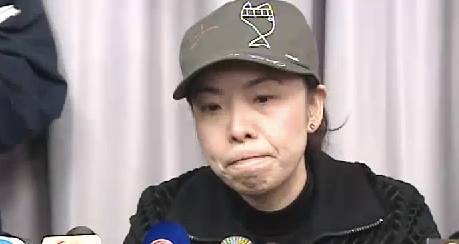
China is ranked 175th while Hong Kong is ranked 61st in the World Press Freedom Index 2014 released by Reporters Without Borders.
“Hong Kong's media independence is now in jeopardy”, Reporters Without Borders pointed out in its 2014 World Press Freedom Index. The conclusion echoes the Committee to Protect Journalists’ special report on the practice of self-censorship in Hong Kong, in which Hong Kong legislator Claudia Mo commented:
Self-censorship – it's like the plague, a cancerous growth, multiplying on a daily basis […] In Hong Kong, media organizations are mostly owned by tycoons with business interests in China. They don't want to lose advertising revenue from Chinese companies and they don't want to anger the central government.
In the past ten years, a large number of newspapers columnists, editors, radio and television talk show hosts have been sacked because of their critical stance towards the Hong Kong and Beijing governments. The situation has worsened in the past two years, thanks to the new leadership of Chinese Communist Party's (CCP) adoption of a hardline position on “ideological battle”, which upped the political pressure on media organizations in Hong Kong. The political interference is exercised through replacement of senior news editors and the withdrawal of advertisements by pro-Beijing corporates.
The latest example of the poor state of affairs is Commercial Radio Hong Kong (CRHK), which sacked its most popular radio host, Lee Wai-ling, on February 12, 2014 without providing any reason. Back in November last year, Lee was forced to switch from a morning program to an evening program under the excuse of program improvement. Despite the pressure, she vowed to keep her voice heard over the radio. But now she has been silenced, as depicted by Lam Sui-bun's political cartoon.
Ng Chi-sum, a former phone-in host for Radio Television Hong Kong (RTHK), whose contract was discontinued in 2011 in spite of his popularity, pointed out that such “program rearrangements” are a kind of political punishment and humiliation. He shared his experience:
2004年我從香港電台早上烽煙調到黃昏,類似理由,聽過很多了。香港人收聽台的習慣,晨早上班前是黃金時段,聽眾最多,影響力最大,是兵家必爭之地。調到黃昏,聽眾立刻減少一半,擺明是要削弱你的影響力,如此調動,對節目主持人是懲罰,甚至是悔辱。
我被調到黃昏節目,絕不好過,為了平衡,他們找了幾個極左派來做我的拍檔,每次做完節目,都筋疲力盡 […] 還有向廣管局和電台的投訴攻勢,長官會不時刻意拿給我看,左派報紙一年五、六十篇的大批判文章,卻不聞不問,不發一言,不澄清不辯駁一個字都不回應。這擺明是要羞辱你,等你頂不住而辭職。
Back in 2004, I was switched from the morning to evening phone-in program at RTHK with similar excuses. Hong Kong residents are used to listening to the radio in the morning before they leave home for work. This is the peak hour with the most listeners and thus has the strongest influence [on public opinion]. It is a time slot that everyone wants to compete for. The switch will cut the audience by half and so is a move to reduce your influence. It is a punishment or even a humiliation for the host.
After I was moved to the evening, to balance the pro-Beijing voices of my co-host, I was extremely exhausted. […] In addition, I had to face all manners of complaints and attacks. My boss would hand me the articles written by the pro-Beijing newspapers to me. They published 50-60 articles within one year to discredit me. But my boss never spoke up to defend me. All these gestures are to humiliate you and to force you to resign.
Chan King-fai, a current affair commentator, observed that the political tolerance of the Beijing government has continued to shrink to the extent that even moderate critical voices have to be eliminated:
李小姐絕非火爆主持,而是擅長提問、「收風」和拆局,相比10 年前「青筋暴現」的名嘴,溫和太多了吧。同一份落差和驚訝也曾發生在較早之前,即吳志森被港台「封咪」之際:與之前的名嘴相比,「吳志森」猶如謙謙君子。但今天,隨着標準不斷滑落,他也成了必須被拔除的「眼中釘」。
Miss Lee is not radical. Her style is to raise questions, present insider views and analyze the political situation. When compared with the “hot-tempered” host ten years ago, she is too moderate. The same fate happened to Ng Chi-sum, who is like a gentleman. However, the standard [for censorship] keeps lowering and they have to be eliminated as well.
Blogger “hkcritics” asked what society could do to defend itself:
換個角度說,就是我不交代,你能把我怎樣﹖這是一個明確的信號-現時社會所有對政府施加的壓力都不能構成威脅。
被看扁了,但我們還有什麼施壓的板斧﹖包圍政總三百六十五日﹖參與佔中﹖李慧玲事件讓我們看到的香港的絕路,或者是一個溫度計,告訴我們溫水煮蛙的年代完結了,水已到沸點,政府可以對鍋裡的青蛙肆意蹂躪了。
To address the issue from another angle, even if I [the commercial radio] do not give any explanation, what can you do? This is a sign – regardless of the pressure that the public imposes on the government, it doesn't constitute a threat.
We are being looked down, what else can we do? Siege the government building for 356 days? Join the occupy central campaign? What we see here is a dead end. The thermometer tells us that the frog is no longer in warm water, the water is boiling and the government can do whatever it wants to the frog.

Lee Wai-ling talked about the political pressure Hong Kong media organizations are facing during a press conference.
Sacked radio host Lee Wai-ling believed that the incident is political in nature in a press conference on February 13. According to inmediahk.net's Facebook live-cast, Lee believes that:
她的事並不是單一事件,從《明報》換總編輯、《信報》,到《AM730》及《蘋果》被抽廣告可見。她期望香港人會醒,看清楚外面發生什麼事。今日還沉默的話,明日便會被集體沉默。
What happened to her is not a single issue. It is related to the replacement of Ming Pao's chief editor and Hong Kong Economic Journal's political reporter team, the withdrawal of commercial ads from AM730 and Apple Daily. She hope that Hong Kong people would wake up and see what's happening to the society. If they choose to remain silent today, tomorrow they have no choice but remain silent.
While some suggested that online new media can be an alternative to mainstream media, as big corporates start to withdraw advertising from independent news organizations, whether or not the commercial model of local new media initiatives can survive is in question. As for the voluntary based citizen media model, so far very few have had the resources and organizational backup to produce original news and investigative reports. Once Hong Kong's mainstream and conventional media organizations have fallen, the online media will be further ghettoized and marginalized.








7 comments